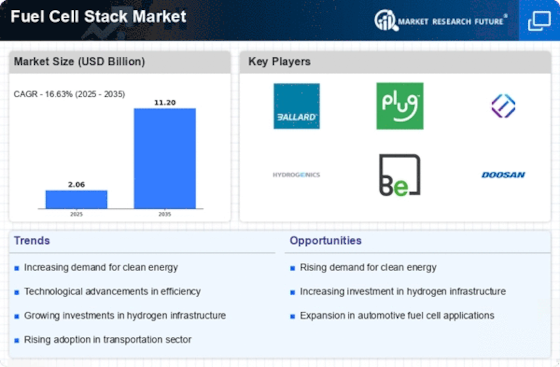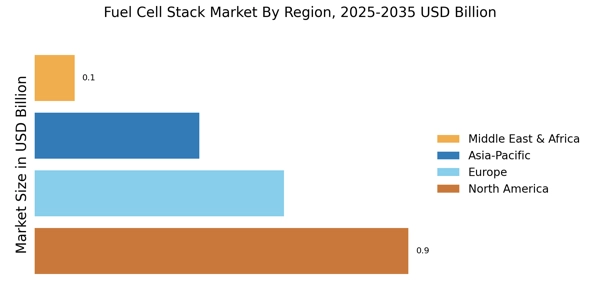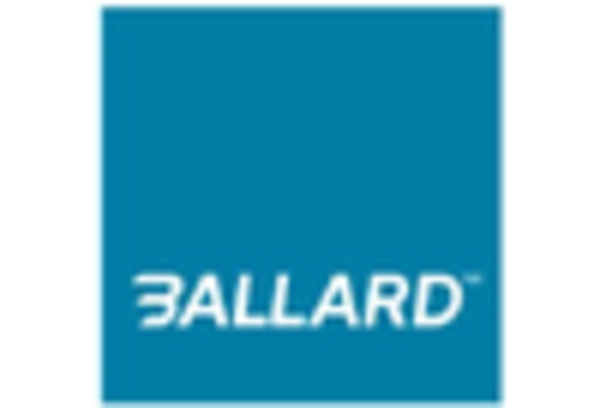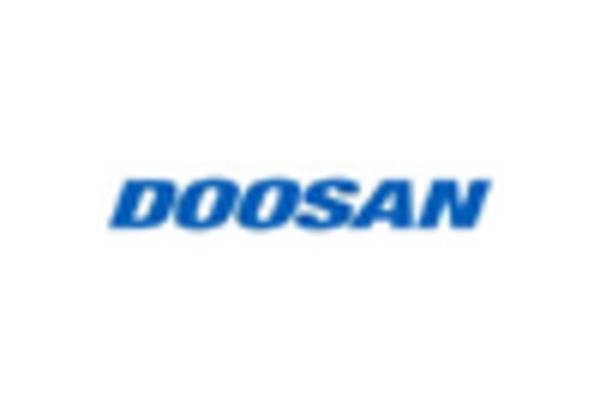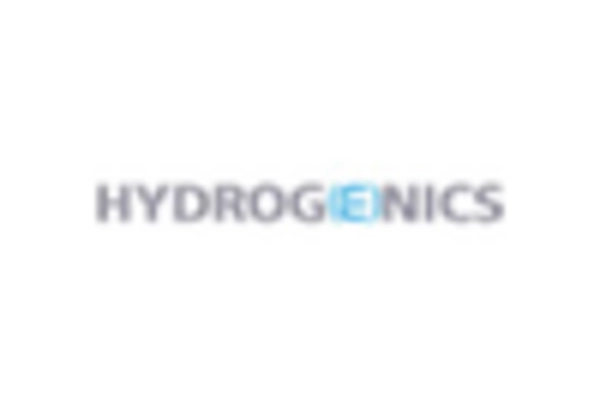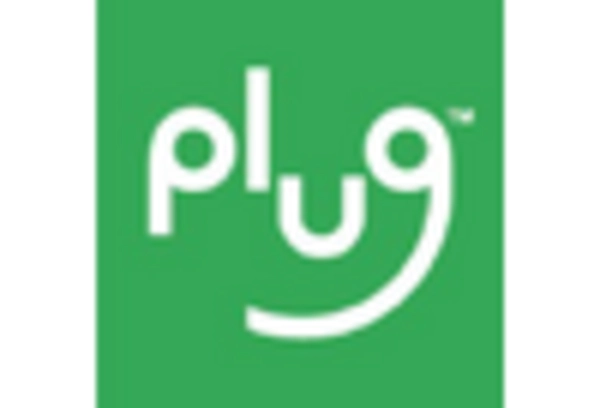Government Incentives and Support
Government incentives and support mechanisms are playing a crucial role in propelling the Fuel Cell Stack Market forward. Various countries have implemented subsidies, tax breaks, and grants to encourage the development and deployment of fuel cell technologies. For instance, in 2025, several nations are expected to allocate significant funding towards research and development in this sector, potentially exceeding billions of dollars. Such financial backing not only stimulates innovation but also lowers the entry barriers for new players in the Fuel Cell Stack Market. Consequently, this supportive environment fosters competition and accelerates the commercialization of fuel cell technologies, making them more accessible to consumers and businesses alike.
Growing Interest in Hydrogen Economy
The growing interest in the hydrogen economy is emerging as a pivotal driver for the Fuel Cell Stack Market. As hydrogen is recognized as a clean energy carrier, its potential applications in transportation, power generation, and industrial processes are expanding. In 2025, the market for hydrogen fuel cells is anticipated to grow substantially, with projections indicating a potential market size of over 10 billion dollars. This burgeoning interest is likely to catalyze investments in hydrogen production, storage, and distribution infrastructure, thereby enhancing the viability of fuel cells. The Fuel Cell Stack Market stands to gain from this momentum, as hydrogen fuel cells offer a sustainable alternative to traditional fossil fuels.
Diverse Applications Across Industries
The diverse applications of fuel cells across various industries are driving growth in the Fuel Cell Stack Market. From automotive to stationary power generation, fuel cells are being integrated into a wide range of applications. In 2025, the automotive sector is expected to account for a significant share of the market, with several major manufacturers investing heavily in fuel cell technology for vehicles. Additionally, the use of fuel cells in backup power systems and portable electronics is gaining traction, further broadening the market's scope. This versatility not only enhances the appeal of the Fuel Cell Stack Market but also positions it as a key player in the transition towards sustainable energy solutions.
Rising Demand for Clean Energy Solutions
The increasing The Fuel Cell Stack Industry. As nations strive to meet stringent environmental targets, the adoption of fuel cell technology is gaining traction. In 2025, the market is projected to witness a compound annual growth rate of approximately 20%, driven by the need for sustainable energy sources. This shift is not only influenced by governmental policies but also by consumer preferences leaning towards eco-friendly alternatives. The Fuel Cell Stack Market is likely to benefit from this trend, as fuel cells offer a viable solution for reducing greenhouse gas emissions and enhancing energy efficiency across various sectors.
Technological Innovations in Fuel Cell Design
Technological innovations in fuel cell design are significantly influencing the Fuel Cell Stack Market. Recent advancements in materials science and engineering have led to the development of more efficient and durable fuel cells. For example, the introduction of advanced membrane technologies has improved the performance and longevity of fuel cells, making them more appealing for various applications. In 2025, the market is expected to see a surge in the adoption of these innovative designs, which could enhance the overall efficiency of fuel cell systems by up to 30%. This trend not only boosts the competitiveness of the Fuel Cell Stack Market but also attracts investments aimed at further enhancing fuel cell technology.


